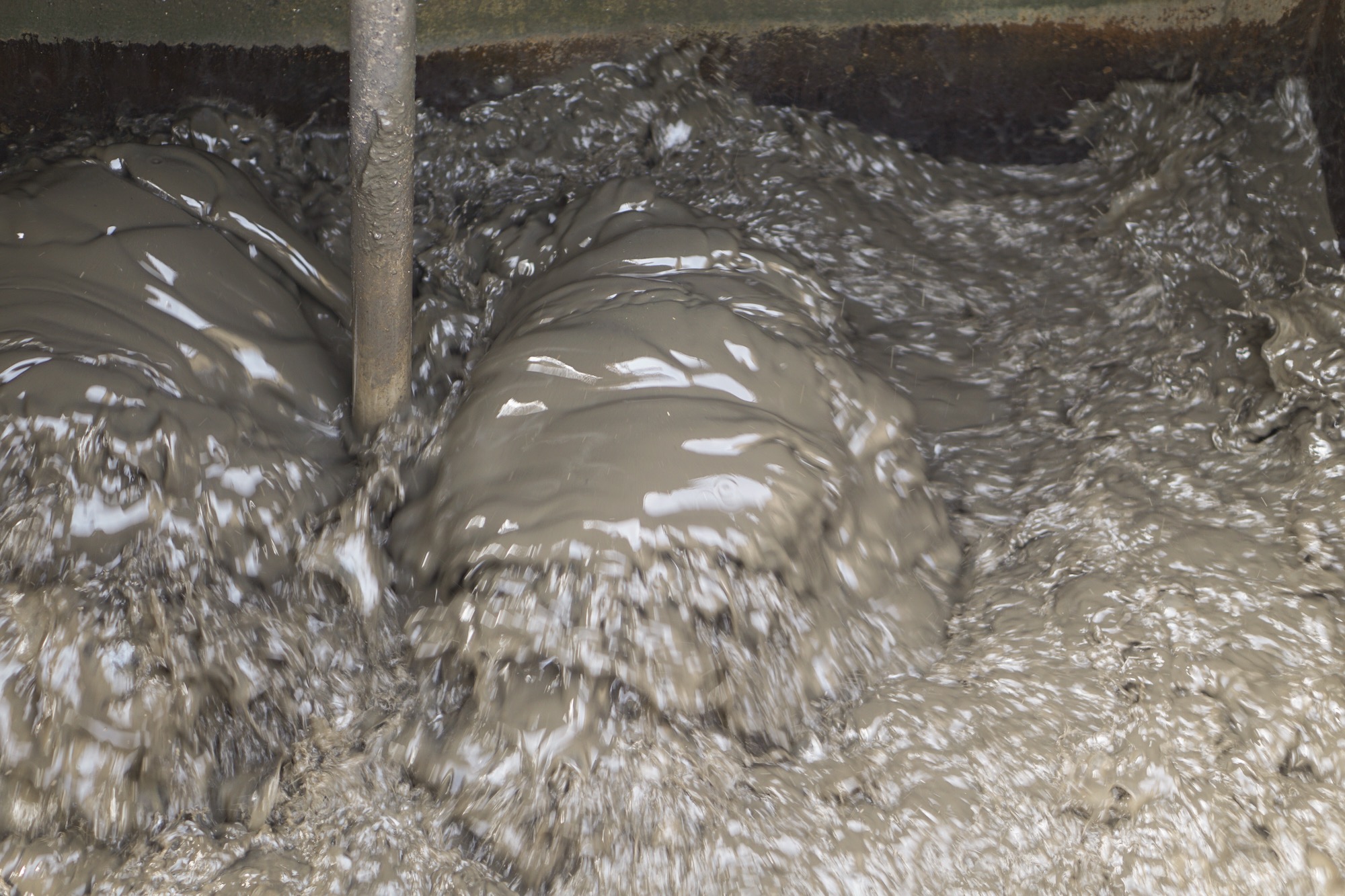
The goal of sludge dewatering is to reduce water volume, allowing slurry to be condensed for easier disposal. When it comes to sludge dewatering technology, there are several methods to choose from. Each has its own benefits and drawbacks, so understanding the difference is key to knowing which method is best for your bottom line. Two common types of dewatering technology include screw presses and filter presses.
Screw Press
A screw press is a cylindrical press that utilizes centrifugal force to decant the slurry mix. By spinning the bowl and conveyor at different speeds, it easily separates the solid particles from the liquid. However, due to the nature of the process, the solid waste produced by the screw press is typically around 10% solid.
Filter Press
Filter presses, on the other hand, create slurry cakes that can consist of as much as 50% solids. The filter press does this by pushing the slurry mix through a feed pipe. The feed pipe is pressurized, and as the pressure builds, the slurry mix is forced through filters. These filters usually consist of a tight, two-to-three micron weave, which prevents solid particles from passing through. The water, however, can still pass easily through the filters. That is, until the filters become clogged and require cleaning or replacement.
Filter vs. Screw Presses
The choice between the screw press and filter press for water treatment depends on your business’ unique needs. However, not only do filter presses perform better than screw presses, their initial installation also costs less than that of the screw press. The filter press does incur the additional cost of filter replacement. The screw press also comes with maintenance costs, and because of the variety of moving parts, it can incur large maintenance and repair costs.
The Best Press For Your Company
Your company’s application of dewatering technology may help determine which choice is best. Working with a company like Full Circle Water can also help you ensure you’re getting the correct dewatering technology for your business. Contact Full Circle Water today for answers or to arrange the installation of your new dewatering technology.